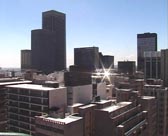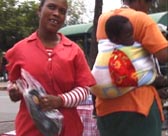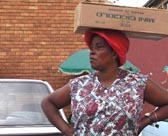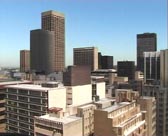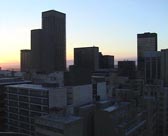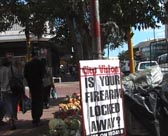framerec
cooperation ella raidel rené straub
the exhibition [based upon] true stories focuses on the documentary film
as one of the most fertile cinematographic and artistic forms.
for catherine david, director of witte de with, and jean-pierre rehm, curator of the international documentary film festival of marseille (fid marseille), the pivotal questions when putting together this exhibition were how filmmakers/artists are engaged in their visual testimony and what rhetorical choices they make.
After the debunking of the 'meta-narratives' of the modern age it has become impossible to speak for everyone, and all we can do now is offer a personal testimony. This is no different for filmmakers and artists: every documentary is a personal testimony. What is significant, however, is the standpoint taken: what are the maker's ideas and how are these visualized or portrayed? In this respect the documentary can be regarded as a political statement.
Hard cut shows two extremes of the center of Johannesburg: the abstract skyline and the hectic daily life at street level. From the rooftops the city seems lifeless. All that betrays another dimension to the city is the indefinable noise from the street. The day begins, the sun is reflected in the windows of the towering office blocks, and gradually moves higher in the sky. The floors of the hotels remain deserted. Laundry hangs on clotheslines here and there. Some of the office buildings are inhabited by people. The slow-moving images of the skyline contrast with the speed of the images of people on the street. They rush from one place to another, conduct business with each other, or shove their way through the crowds with their children in tow.
